By Dashnor Kaloçi
Memorie.al / The idea and paranoia of Enver Hoxha and the high leadership of the Party of Labor of Albania (PPSH), declared somewhere in the mid-1960s, for “the creation of the new man, with the norms of socialist morality,” was not merely a “project-idea” to be “implemented” only on us Albanian citizens of the People’s Republic of Albania, but also on all foreign citizens who would enter Albanian territory. Among other things, this is made known by an ordinance from May 1973, by the then-Minister of Internal Affairs, Kadri Hazbiu (who was also a member of the Political Bureau of the Central Committee of the PPSH), addressed to all Border Crossing Control Points, where, among other things, he wrote: “All foreign persons whose external appearance is in contradiction with the norms of our socialist morality, such as men with hair like women’s, with very exaggerated sideburns, with unkempt beards, as well as with inappropriate clothing, specifically women with mini-skirts and maxi-skirts, shall not be allowed to enter the PRA (People’s Republic of Albania)!”
According to him, this was done with the purpose of: “preventing the influence of bourgeois-revisionist ideology through the extravagant clothing and appearance of foreigners who come to the PRA for various reasons!” But it seems that this decision of the Albanian government at that time, which came after a proposal from the Political Bureau of the Central Committee of the PPSH and was meticulously implemented for years at all Border Crossing Control Points of the People’s Republic of Albania and the only international airport in Rinas, not only made official Tirana look ridiculous in the eyes of the world (from the writings published in foreign media by the few journalists who were allowed to come to Albania), but that decision seems to have had tragic consequences as well.
This was the case of the 22-year-old tourist, William Patrick Ottonell, who committed suicide by jumping from the fourth floor of the ‘Apollonia’ Hotel on Durrës beach, just because he had his hair cut and his clothes changed as soon as he entered Albanian territory. This is revealed by a “Secret” archival document from the Archive of the Ministry of Internal Affairs, which is published for the first time with the relevant facsimile by Memorie.al.
Along with this document, we are also publishing several other archival documents from the Central State Archive in Tirana (the former Central Committee of the PPSH fund), which contain some documents belonging to the year 1973, where the Minister of Internal Affairs, Kadri Hazbiu, issued an ordinance addressed to the Border Control Points and the Directorate of Customs, with several criteria that all foreign citizens entering the People’s Republic of Albania had to meet, regarding their clothing and external appearance, such as long hair, sideburns, etc., and the prohibition of religious literature they might possess, etc.
As well as the document with the report-information from the Directorate of Customs at the Ministry of Commerce, addressed to the Foreign Directorate in the Central Committee of the PPSH, regarding the event of July 20, 1973, where a group of tourists from the company “Retel Tours das rrollende hotel,” of West Germany, consisting of 36 Germans, 5 Austrians, and 1 Luxembourger, were stopped from entering at the Hani i Hotit Customs, as they possessed religious literature, etc.
THE SECRET ARCHIVAL DOCUMENT WITH THE OPERATIONAL COMMUNIQUÉ OF THE MINISTRY OF INTERNAL AFFAIRS, ABOUT THE EVENT WITH THE IRISH TOURIST AT THE “APOLLONIA” HOTEL ON DURRËS BEACH
PEOPLE’S REPUBLIC OF ALBANIA S E C R E T
MINISTRY OF INTERNAL AFFAIRS Copy No. 1
DIRECTORATE OF ADMIN. AND STUDIES Tirana, dated 28.7.1975
OPERATIONAL COMMUNIQUÉ NO. 175
On 27.7.1975, at 8:00 a.m., the Irish tourist, William Patrick Ottonell, 22 years old, born and living in the city of Kater in the Republic of Ireland, a plumber by profession, with a secondary education, unmarried, threw himself from the fourth floor of the ‘Apollonia’ Hotel. He was admitted to the hospital and his condition is serious. (There are hopes he will survive). It is preliminarily thought that he did it because, when he entered our territory on 17.7.1975, according to the rules, he was obliged to get his hair cut and change his clothes. He expressed this to his friends and suffered from a persecution complex, which he had also shown in his own country, as he had mental depressions. The matter is being followed.
DIRECTOR
PILO SHANTO
THE ARCHIVAL DOCUMENT FROM 1973, WITH THE ORDINANCE OF THE MINISTER OF INTERNAL AFFAIRS, KADRI HAZBIU, SENT TO THE BORDER CROSSING POINTS, ON THE CRITERIA THAT ALL FOREIGN CITIZENS COMING TO ALBANIA MUST FULFILL
MINISTRY OF INTERNAL AFFAIRS No. 479
Copy No. 1
Tirana, dated 4.5.1973
CRITERIA
ON THE PROHIBITION OF ENTRY INTO THE PRA OF FOREIGN CITIZENS WHO’S CLOTHING AND EXTERNAL APPEARANCE ARE IN CONTRADICTION WITH THE NORMS OF OUR SOCIALIST MORALITY
To maintain the rules of appearance in our socialist country, as well as to prevent the influence of bourgeois-revisionist ideology through the extravagant clothing and appearance of foreigners who come to the PRA for various reasons, as well as through the literature they bring with them, the following criteria must be applied:
1 – All foreign persons whose external appearance is in contradiction with the norms of our socialist morality, such as men with hair like women’s, with very exaggerated sideburns, with unkempt beards, as well as with inappropriate clothing, specifically women with mini-skirts and maxi-skirts, shall not be allowed to enter the PRA.
2 – The passage of any kind of counter-revolutionary, religious, or pornographic literature shall not be allowed. This type of literature must be held at customs and if their possessor requests it, it should be given to them upon their return.
3 – Technical, cultural, and artistic literature is allowed for all foreigners who come to our country, in the amount of one or two books or magazines that are claimed to be for personal use. The other quantity of this literature is prohibited and must be immediately sent to the Directorate of Customs, which, after making verifications based on the rules, sends this without delay to the institution or ministry that is hosting the foreigner.
4 – Persons with inappropriate content and those who bring prohibited literature must be treated in a correct and civilized manner by the border and customs authorities, making the reasons for these measures clear to them. All those foreigners who will correct their appearance and clothing on the spot are allowed to enter the territory of the PRA.
5 – The border and customs authorities shall not apply the measures foreseen in points 1, 2, and 3:
A – For accredited diplomats in the PRA and employees of diplomatic and commercial missions, as well as for their family members.
B – For officials of the Ministries of Foreign Affairs, and diplomatic couriers of foreign countries that have diplomatic missions in Tirana.
6 – The border and customs authorities shall not apply the measures foreseen in point 1:
A – For members of official delegations hosted by various ministries or institutions of our country.
B – For members of sports teams who come at the invitation of our country or within the framework of international sports meetings.
The persons mentioned in points 5 and 6 will be free to cross the border of our country, regardless of their appearance. In such cases, the border crossing points and customs authorities, in a civilized manner, should point out to them that the rules of our country do not permit such an appearance; nevertheless, you are free to pass.
In addition to this, for every case, they should send detailed information about these findings to their superior body as soon as possible.
The information is forwarded to the host institution which will take measures to correct their appearance.
MINISTER OF INTERNAL AFFAIRS
KADRI HAZBIU
REPORT OF THE GENERAL DIRECTORATE OF CUSTOMS, ADDRESSED TO THE FOREIGN DIRECTORATE AT THE CENTRAL COMMITTEE OF THE PPSH, REGARDING THE BLOCKING AT THE HANI I HOTIT CUSTOMS OF A GROUP OF TOURISTS FROM WEST GERMANY
PEOPLE’S REPUBLIC OF ALBANIA
MINISTRY OF TRADE
DIRECTORATE OF CUSTOMS
No. 307 Prot
Tirana, dated 21.7.1973
TO THE CENTRAL COMMITTEE OF THE PPSH
FOREIGN DIRECTORATE
T I R A N A
We inform you that on 20.7.1973, at 4:00 p.m., a group of tourists from the company “Retel Tours das rrollende hotel” of West Germany arrived at the Hoti customs, consisting of 36 Germans, 5 Austrians, and 1 Luxembourger.
According to the established procedure, they were asked if they had any propaganda materials. They all handed over various newspapers and magazines, with the exception of Jean Etien, born in Nechen, Luxembourg, who did not declare anything.
Based on the information taken on the spot by the Customs employees, a thorough check of the mentioned person was ordered, and they found: 70 brochures of religious prayers in French, 50 brochures of religious prayers in German, 120 pamphlets with photographs of Christ in two forms, as well as 50 photographs of a bleeding Christ, printed in Belgium.
Also in an envelope addressed to Comrade Enver, they found 5 strands of hair inside, 10 photographs of Christ, 8 religious calls, and 5 copying sheets.
After the check, he declared that he would distribute these materials to foreign tourists in our country, and would give the letter to Enver Hoxha.
Under these circumstances, the employees of the Hoti Customs brought him before the group of all foreign tourists, to whom they spoke about the violation of our country’s rules, and they all unanimously requested that this person be sent back.
Despite the group’s request, according to our rules, this person was to be returned, and his return was decided upon. Meanwhile, all the others were decided to be returned to Tirana, being given their allowed materials, while the other materials were held to be given to them upon their return. Jean Etien, after being informed of his return, left for Yugoslavia without saying anything.
Attached, we are sending you the envelope addressed to Comrade Enver, along with the material inside, as well as a copy of the other materials that he left at Customs. Memorie.al
Director of Customs
Edip Çuçi




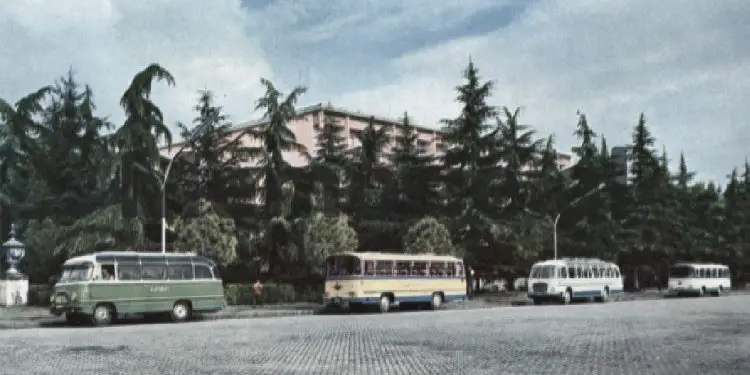
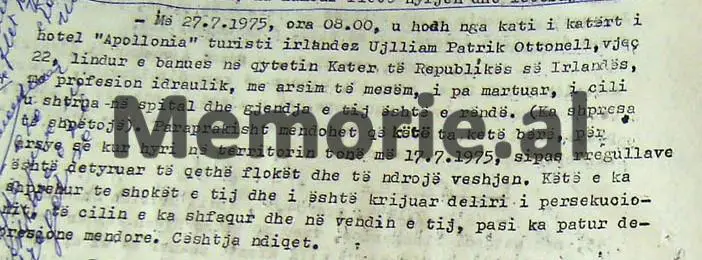
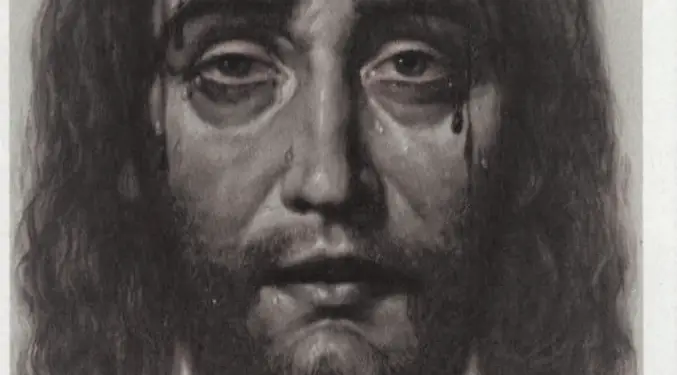
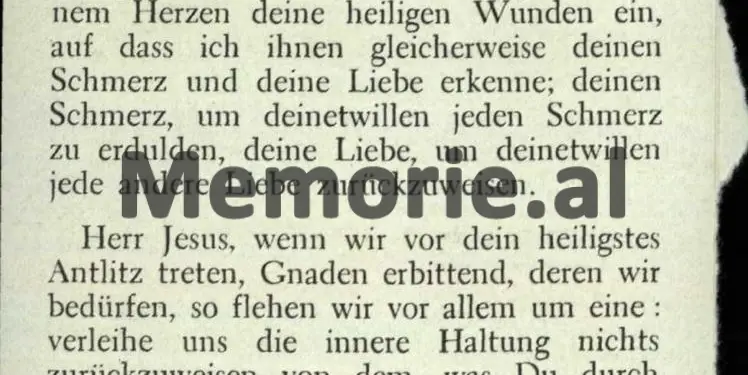
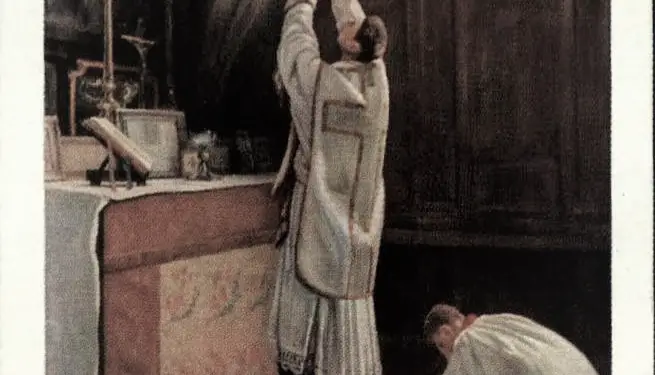
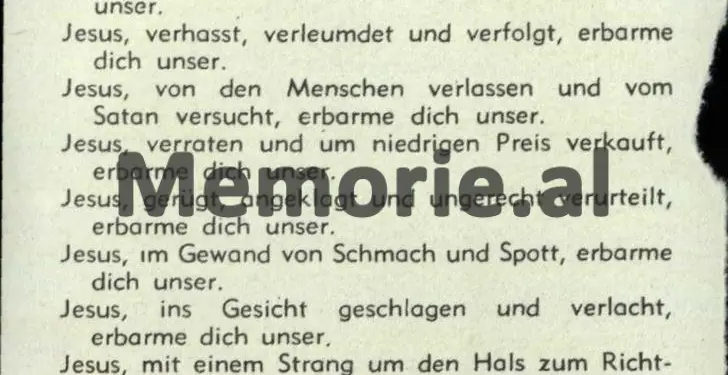
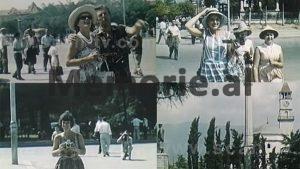
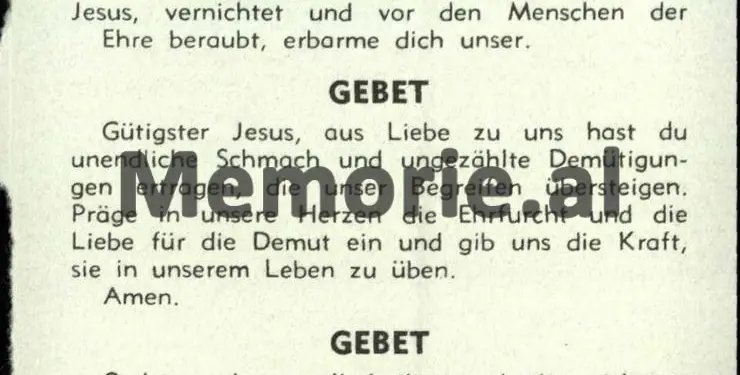
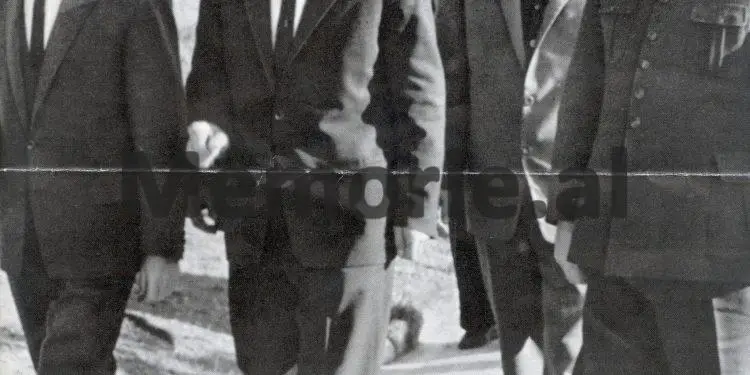
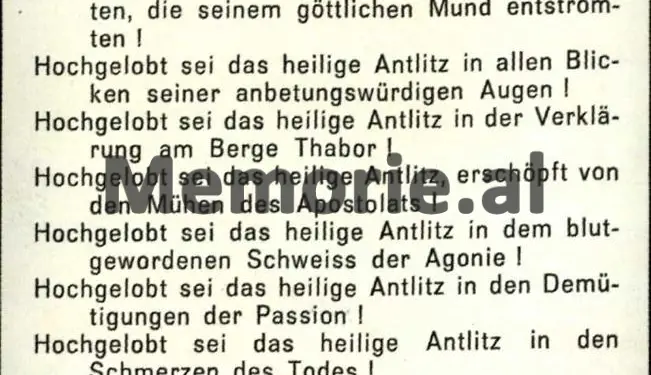



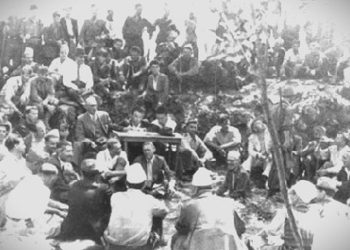
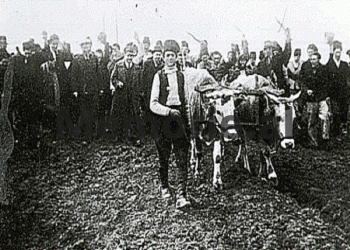
![“They have given her [the permission], but if possible, they should revoke it, as I believe it shouldn’t have been granted. I don’t know what she’s up to now…” / Enver Hoxha’s letter uncovered regarding a martyr’s mother seeking to visit Turkey.](https://memorie.al/wp-content/uploads/2026/01/Dok-1-350x250.jpg)
